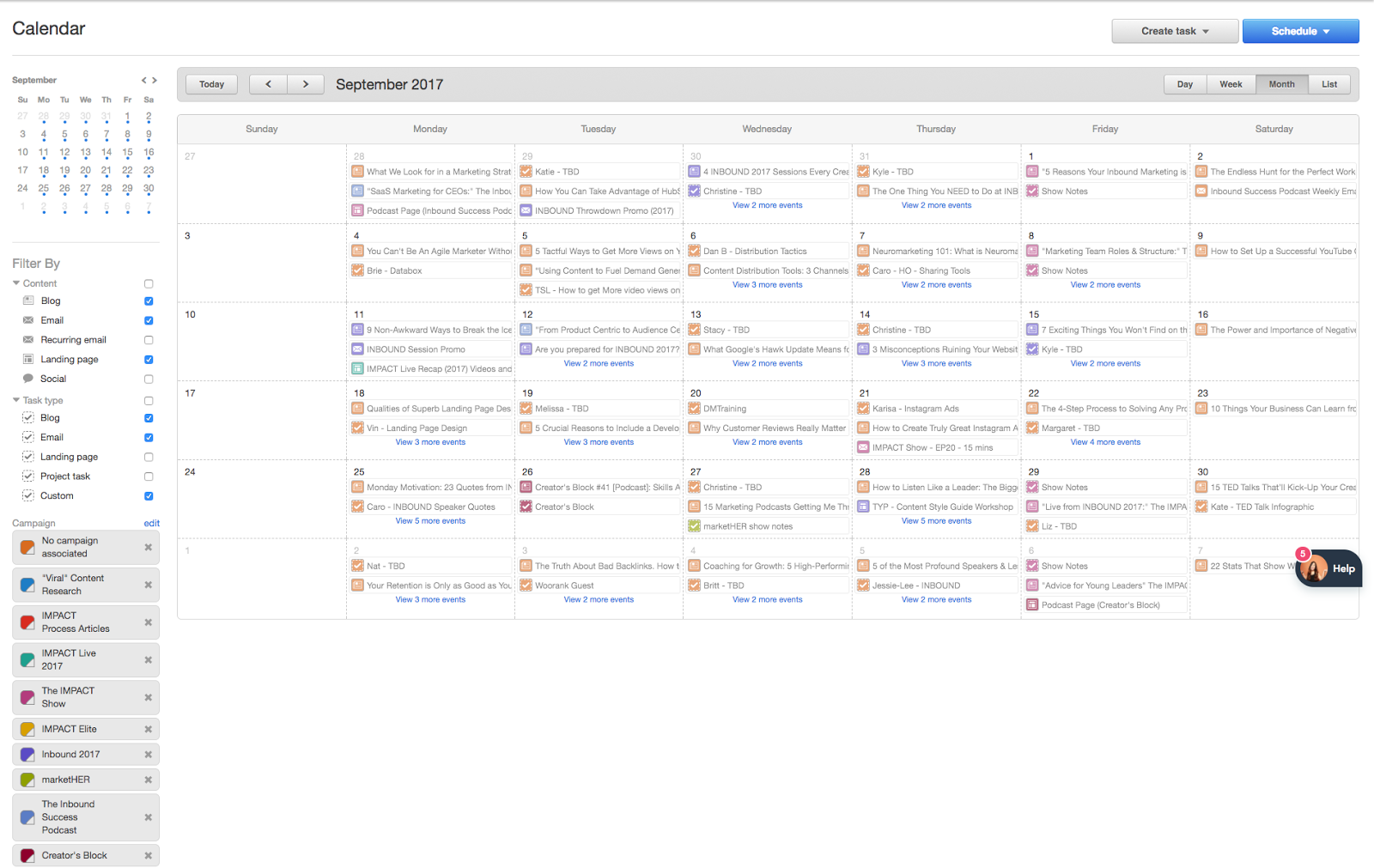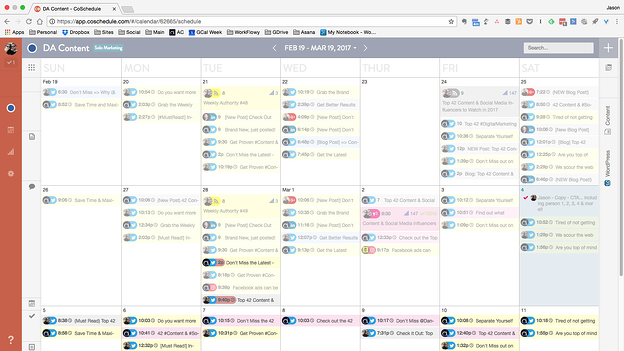How to Create a Marketing Calendar You’ll Actually Use

By rsukhraj@hubspot.com (Ramona Sukhraj)
No matter what type of business I’ve worked for over the years, my team has always stressed the importance of a marketing calendar — and then never made one.
A marketing calendar is essential to keeping a team organized and productive, but creating and maintaining one can be intimidating without the right guidance. So, if you’re reading this hanging your head in shame, don’t worry; this is a safe space. And today, we’re breaking the cycle.
Let’s unpack how to create a marketing calendar you’ll actually use.
What is a marketing calendar?
A marketing calendar is a schedule of your upcoming marketing activities and important dates. It covers a month, quarter, or even year and documents product launches, social media posts, blog articles, sales, and live events. Social media calendars, content calendars, and event calendars are also examples of types of marketing calendars.
At its core, a marketing calendar is pretty simple. It’s just a schedule of your team’s upcoming marketing activities and important dates. Think of it like a vacation itinerary but with fewer tours and more blog articles — which are way more fun anyway, right?
Some companies may opt for a single marketing calendar, which gives them a high-level overview of everything scheduled in a given month, quarter, or year, while others prefer multiple marketing calendars dedicated to specific activities, like a social media or editorial calendar.
Any complexity with a marketing calendar (like a vacation itinerary) depends on how detailed your team wants to get and how you plan to use it, but more on that shortly.
What should a marketing calendar include?
Regardless of the finer nuances of your marketing calendar, there are several “big ticket” milestones you should account for no matter what. These include:
- Campaigns
- Product Launches
- Sales
- Webinars/Live Events
- Industry Conferences
- Content Publication
- Emails
- Holidays
- Experiments/Tests
These milestones can dramatically impact buyer behavior. Noting them on a marketing calendar will help you plan and respond accordingly.
Depending on your team’s needs and workflows, you may also want to include details like the platform or channel, project description, assignees, deadlines, status, and resource links on your marketing calendar — but the type of marketing calendar often dictates this.
Types of Marketing Calendars
In my experience, many teams benefit from activity-specific marketing calendars rather than just one general calendar.
With all of the activities that fall under marketing, activity-specific calendars clear out noise so you can focus on the right information at the right time. Having different types of marketing calendars also gives accountable teams more freedom to customize the calendar as needed.
For example, my marketing career has almost always revolved around an editorial or content calendar. “Sorry, can’t do lunch. I have to schedule an article for tomorrow,” was a common sound bite for me.

Source:: HubSpot Blog










